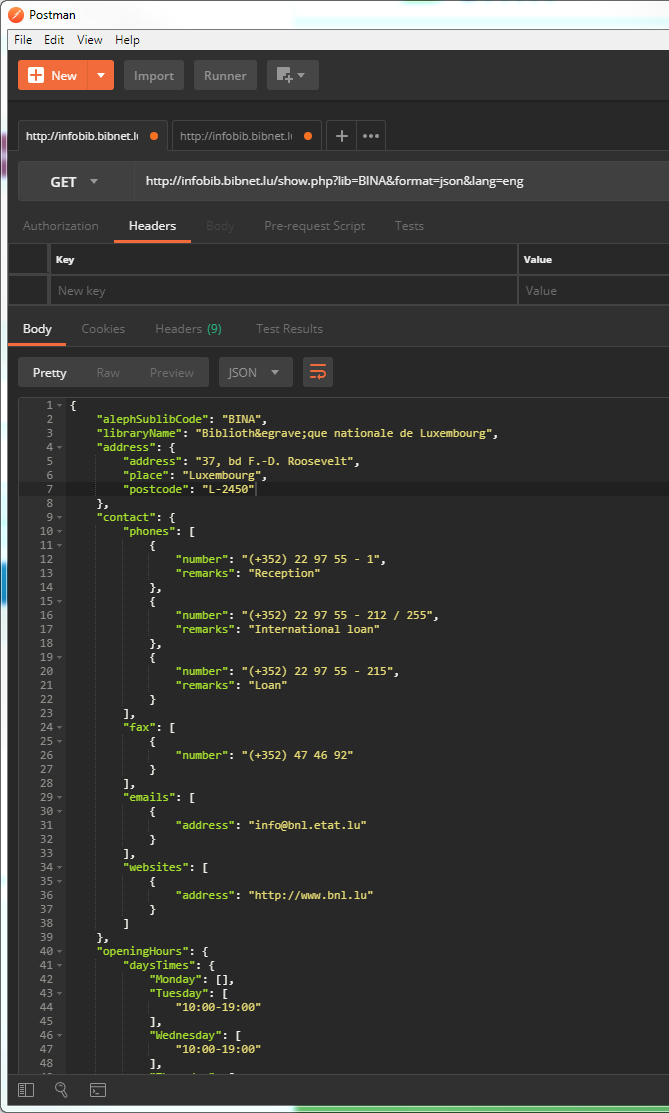Library Network Information
In 1985, the BnL established a network that brought together Luxembourg’s libraries, bibnet.lu. The bibnet.lu network currently has more than 80 members, which include libraries of cultural institutes, universities and schools, public and subject specialist libraries.
As service provider of the bibnet.lu network, the BnL develops and maintains the IT tools used by all members of the network. This work is accomplished in close cooperation with the Government IT Centre (Centre des technologies de l’information de l’Etat, CTIE).
What is InfoBib?
The InfoBib project centralises public information about the libraries in the network and makes it easier for the bibnet.lu team to manage changes and additions of new information. The InfoBib API, already used internally by different interfaces of the BnL, offers information about each library in the network such as addresses, opening times, contact information, access conditions etc.
Learn more about bibnet.lubibnet.lu blogHow does InfoBib work?
Data from the InfoBib project is accessible via HTTP requests returning JSON formatted responses, allowing for simple integrations in other systems.
Get all bibnet.lu libraries
An up-to-date list of all the libraries and their codes (managed in the Integrated Library System Aleph) is available in JSON format right here:
http://infobib.bibnet.lu/bibnet-libraries.jsonHow to use the API?
Base URL: http://infobib.bibnet.lu/show.php
Simply send a GET request to the base URL by including the library code, format and language code as query parameters.
Example:
Library code
This code identifies the library. You can get all library codes from the bibnet-libraries.json described below. From that data, it is the value for the key “alephSublibCode”.
Example usage: lib=BINA
Format
Set the format of the response. Only JSON is supported for the moment.
Example: format=json
Language code
The language parameter does not change the language of the JSON name tags, which are always in English, but it is used for displaying different statements about the libraries (access conditions, opening hours etc.). There are 3 options for the language in which the response will be written: English (eng), French (fre) and German (ger).
Example: lang=eng

